-
About
- About Listly
- Community & Support
- Howto
- Chrome Extension
- Bookmarklet
- WordPress Plugin
- Listly Premium
- Privacy
- Terms
- DMCA Copyright
- © 2010-2025 Boomy Labs

 Ken Peterson
Ken Peterson
Listly by Ken Peterson
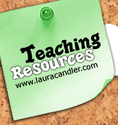
Literature Circle Models After experimenting for many years, I discovered an approach that's easy, fun, and effective. I refer to it as Classroom Book Clubs because it's a more relaxed method of doing Literature Circles that doesn't involve roles. You can view a narrated slidecast to this model by scrolling down to the Classroom Book Clubs section.
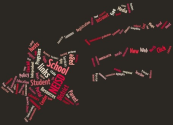
These are tools that can be used for secondary students to support various stages of the writing process: brainstorming, note-taking, revising, and editing [Page 1]

Creative Writing Ideas, Prompts, Exercises, Resources, Platforms, Tools & Learning Nuggets [Page 1]

Learn how techie tools can be used to enhance writing in the classroom [Page 1]
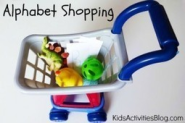
Resources and information to support strengthening the teaching and learning of English Language Arts in the 21st Century [Page 1]
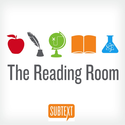
The Reading Room taps into the conversations happening among educators across the country, giving teachers a voice to elevate topics related to digital reading, literacy tools, strategies, and ultimately what kids love to read - in language arts, science, history, and every classroom in between. We're excited to bring this conversation to The EdReach Network.

Bits is a multi-author weblog that provides instructors with teaching ideas from leading scholars, authors, and editors.
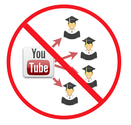
IPads in classrooms offer such a new learning environment that they demand a shift from the idea of students being passive receivers of learning and demand real engagement and learning ownership by the students themselves. However, even the original 90s design of the Flipped Classroom designed by pioneers like Eric Mazur is still teacher centred....

Teaching English with Technology is an EdTechTeacher resource created for K-12 English and language arts teachers to incorporate technology into their courses.

Learnist makes it super easy to share what you know by curating the web. You can use videos, blogs, books, docs, images or anything on the web to explain how to learn something.

Learnist makes it super easy to share what you know by curating the web. You can use videos, blogs, books, docs, images or anything on the web to explain how to learn something.

Learnist makes it super easy to share what you know by curating the web. You can use videos, blogs, books, docs, images or anything on the web to explain how to learn something.

Learnist makes it super easy to share what you know by curating the web. You can use videos, blogs, books, docs, images or anything on the web to explain how to learn something.

by Kimberly Tyson, Ph.D.,
In the age of the Common Core and its emphasis upon having students take on more challenging text, independent reading and student choice can easily take a back seat to the demands of increased rigor. However, in a balanced literacy program, they remain important.
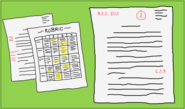
Do you have a mountain of student writing to grade? A pile of extended responses that have been sitting in your passenger seat for a week? Do you wish you had more time to give students better feedback?

It's my fault. I'll admit it. During my eight years in the classroom, I ruined at least two amazing literary works by assigning horrifically dull reading projects. My only hope is that those middle school students, whose enthusiasm I quashed, found another way to become passionate about literature.

Ah, listening, the neglected literacy skill. I know when I was a high school English teacher this was not necessarily a primary focus; I was too busy honing the more measurable literacy skills -- reading, writing, and speaking. But when we think about career and college readiness, listening skills are just as important.
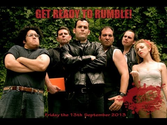
Not your typical 50's greaser gang fight. Produced by STuFF FiLMS

With the abundance of media messages in our society, it's important to ensure students are media literate. The Oscars provide a great opportunity to use the year's best films to teach students about media and film literacy -- they can also be an engaging teaching tool that provokes students' interest in a variety of subjects and issues. Here, we're providing some classroom resources from around the Web:

So if you are not using Google Doc's to share your documents and information with other people then you are really not using Google Doc's to it's potential.

Increasingly, educators are acknowledging and welcoming the relative advantages of social media into the teaching and learning process. From creating school Facebook pages to connecting students with experts via Twitter, social media has taken root as a legitimate classroom learning and communication tool.

Ever since I attended the Google Teacher Academy in 2012 I have wanted to use Google apps to connect with other classrooms. This year I finally did it! I collaborated with Megan Ellis -- a 7th grade English teacher in Palo Alto -- on a Holocaust Diary Project.
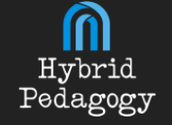
"There is more than one way not to read, the most radical of which is not to open a book at all." ~ Pierre Bayard, How to Talk About Books You Haven't Read Not reading is serious scholarly business. It is a crucial part of the work of critics, students, teachers, and reviewers.
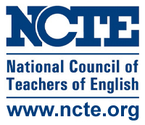
The Middle Level Section of NCTE is the home for middle school and junior high educators, administrators and teacher educators interested in the area of adolescent literacy in the English language arts classroom. A digital edition of the December 2013 issue of Voices from the Middle is now available!
